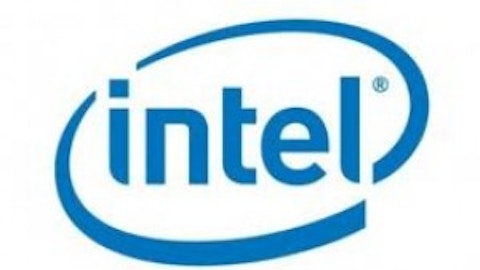![]() The Internet would not have grown as quickly as it did without Bill Gates. The Microsoft Corporation (NASDAQ:MSFT) founder standardized software for the personal computers that are now linked together on the Internet.
The Internet would not have grown as quickly as it did without Bill Gates. The Microsoft Corporation (NASDAQ:MSFT) founder standardized software for the personal computers that are now linked together on the Internet.
From our current perspective, it is obvious that software needs to be compatible with other software. But, in the 1980s, before Microsoft Corporation (NASDAQ:MSFT) made Gates a billionaire, it was actually common to find computers even within a single office with different operating systems and software products like word processing. Gates saw through the disorder and provided standards that made PCs more useful, setting the stage for the Internet.
His investment style shows a similar ability to create order. According to recent SEC filings, Gates controls more than $17 billion worth of stock market investments through the Bill and Melinda Gates Foundation. Of all the thousands of potential investments, this fortune is invested in only 21 stocks. Gates obviously likes to focus his attention on just a few opportunities at any one time.

His largest investment is in Berkshire Hathaway Inc. (NYSE:BRK.B). The Gates Foundation owns more than $8 billion worth of this stock. Bill Gates also sits on the Board of Directors of Berkshire Hathaway Inc. (NYSE:BRK.B) and has access to the investment insights of Warren Buffett.
It is interesting to note that Gates did not make any new buys in the three months that ended June 30, 2013. He did sell five stocks that made up only a small part of his portfolio.
We can see that Gates is a patient and selective investor. As individual investors, it can be difficult to be as patient as a billionaire. Meeting our financial goals generally requires us to earn a profit on our investments in a reasonable amount of time. To do this, I developed a trading system that identifies timely buying opportunities.
I start with a list of stocks owned by great investors like Gates. He has access to brilliant analysts, and they have selected each stock based on its long-term potential. I then look for the stocks on that list that are moving higher faster than the rest of the market and are increasing cash flow.
Relative strength (RS) is a way to identify stocks that are moving higher now. It ranks all investments on a scale of 0 (weakest) to 100 (strongest). A number of research studies show stocks that have moved up the most in the past six months (those with high RS) are likely to outperform the market in the next six months.
Cash flow growth is often seen among stock market winners. This is a fundamental measure that is usually more reliable than earnings.
My system buys when RS is high and cash flow is growing. From the list of stocks in the Gates Foundation, only two are considered buys using these rules right now.
Known for environmentally friendly products, Ecolab Inc. (NYSE:ECL) is a consumer goods company that serves a variety of markets. The company offers cleaners and sanitizers for washing dishes and kitchen equipment for the food service industry, and housekeeping supplies for the hospitality industry. It also provides products for the health care, industrial and energy markets.
Revenue topped $12 billion in the past 12 months. Growth in earnings per share (EPS) averaged 12.65% a year over the past five years and is expected to accelerate to more than 15% a year in the next five years. Free cash flow has turned positive in the past 12 months and increased almost 50% in the last year.
Investors have pushed the stock price up nearly 35% since the beginning of the year, and Ecolab Inc. (NYSE:ECL) has an RS rank of 100, meaning it has been a top performer in the stock market over the past six months.




